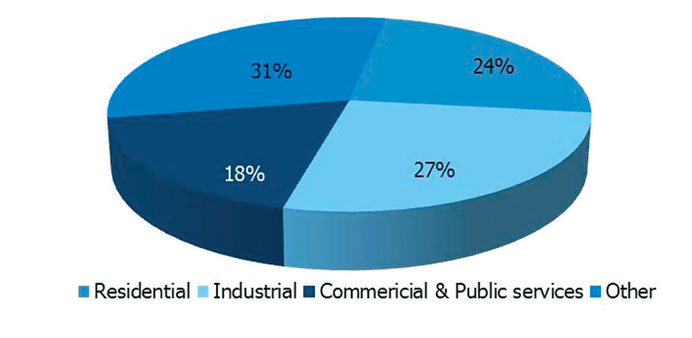By Pratap John/Chief Business Reporter
Rising demand has seen Qatar’s installed power capacity getting doubled in two years up to 2011, a new study has shown.
Because of Qatar’s high GDP growth rates and population explosion, power consumption in the country has increased by a compound annual growth rate (CAGR) of 9.3% between 2001 and 2011, said Kuwait Financial Centre (Markaz) in a report.
Markaz expects Qatar’s per capita power consumption to remain one of the highest in the GCC (Gulf Co-operation Council) region.
Kahramaa is the ultimate body, which caters to Qatar’s electricity and water needs. In December 2002 Kahramaa entered into an agreement with Qatar Electricity & Water Company (QEWC) to transfer all its power stations to QEWC.
Thus, Kahramaa now concentrates on transmission and distribution, while QEWC takes care of generation. Independent Water & Power Projects (IWPPs) in Qatar are formed as public stock companies with QEWC as a major shareholder.
Due to rapid expansion in generation capacity, Qatar currently enjoys a very high reserve margin of almost 40%. Hence Qatar General Electricity & Water Corp (Kahramaa) has announced no further capacity building plans until 2014 but focus will be in the transmission and distribution sector, the report said.
More than a dozen projects are under execution in the transmission and distribution sector, with a gross investment of $4bn.
Qatar is committed to reducing its per capita greenhouse pollution level, the report said. The Qatar National Vision 2030 has stated its ambition to use non-hydrocarbon mechanisms for power generation.
Recently, Qatar announced plans to use solar power for cooling the 2022 FIFA World Cup stadia. The solar power complex project, announced by Kahramaa and estimated to have a capacity of 3,500MW capacity, has been put on hold, Markaz said
Kahramaa might resume work on this project, after 2015, as part of capacity building plan, the report said.
Because of high reserve margins, Qatar could look forward to electricity exports through the Gulf Co-operation Council Interconnection Authority (GCCIA) power grid.
Bahrain and Kuwait have reportedly shown interest in purchasing electricity from Qatar.
“Natural gas is the only source fuelling power plants in Qatar and the country does not have any major alternate energy projects which are under execution. Going forward, creating opportunities and making investments in the alternate energy space will be important for Qatar,” Markaz said.

